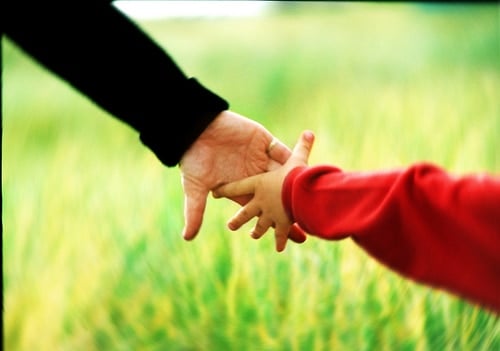
by Shaula Bellour (Indonesia) | Apr 3, 2014 | 2014, Expat Life, Indonesia, Kids, Living Abroad, Parenting, Safety, Shaula Bellour
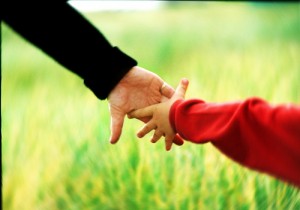 Recently, while checking out at the grocery store my 6-year old daughter wandered a few aisles down to chat with someone while she waited. In child-friendly Indonesia, this is pretty common.
Recently, while checking out at the grocery store my 6-year old daughter wandered a few aisles down to chat with someone while she waited. In child-friendly Indonesia, this is pretty common.
Though my son is generally more wary of people, my daughter is naturally outgoing and enjoys “making friends” wherever we go – usually chatting away in English about school, her friends, her cat, etc.
My son soon went over to join her while I finished paying. As I started to wheel the shopping cart in their direction, I looked up to see that my daughter was giving this man a giant hug around the waist.
My stomach lurched.
Somehow we’d missed out a key lesson from Stranger Danger 101.
We quickly left the store, parked the cart on the sidewalk outside and discussed the fact that it’s not appropriate to hug or touch people that are not our friends or family. I left it at that for the moment, yet days later I found myself still reflecting on the experience and how cultural variables have shaped my thinking.
Growing up in the US, child safety rules were ingrained from a young age, including the widely used “stranger danger” warning that is intended to keep children safe from adults they don’t know.
In Indonesia, it is not so black and white. Typical rules such as “Don’t talk to strangers” can be tricky, if not impossible. Jakarta dwellers are extremely friendly and it is common to talk with and be approached by strangers wherever you go. For me, these kindly interactions are one of the joys of living here and it’s often the presence of my children that sparks the most interesting exchanges.
Another rule, “Don’t accept gifts from strangers,” can also be difficult to avoid. My children have been offered sweets by security guards and local treats by waiting area strangers. We may not always partake of these offerings, but there are times when it would be impolite to refuse them.
Children in particular attract a great deal of attention in Indonesia and strangers frequently pinch cheeks, touch hair and even take photos. My kids don’t usually appreciate this, but it can be a good opportunity to explore personal boundaries and what is comfortable or not.
Not long ago, an adoring Grandma-type reached out to stroke my daughter’s hair while she was washing her hands in the airport restroom. My daughter recoiled and then shouted “NO! I don’t like it!” at the top of her lungs. Although she probably shocked the small tour group of elderly ladies, her boundaries were clear.
In terms of larger safety concerns, it is interesting to consider how perceptions of danger in different contexts – and perceptions of safety – influence my parenting.
The recent article by Hanna Rosin,”The Overprotected Kid,” raises some important points about these perceptions:
“When you ask parents why they are more protective than their parents were, they might answer that the world is more dangerous than it was when they were growing up. But this isn’t true, or at least not in the way that we think. For example, parents now routinely tell their children never to talk to strangers, even though all available evidence suggests that children have about the same (very slim) chance of being abducted by a stranger as they did a generation ago. Maybe the real question for sharing is, how did these fears come to have such a hold over us? And what have our children lost—and gained—as we’ve succumbed to them?”
Like any parent, I want my children to be safe. However, I don’t want them to grow up in an atmosphere of fear and mistrust. To me, rather than emphasizing stranger danger, it seems far more useful to instill confidence and teach them to recognize and avoid certain situations, rather than people in general.
I hope that I can equip my children with the skills, knowledge and strategies they will need to protect themselves and be safe but not scared. Obviously, it’s an ongoing process but one that is particularly important for our family as we move between countries and as our children grow up and encounter new situations.
How do you navigate cultural norms and perceptions related to child safety?
This is an original post for World Moms Blog by Shaula Bellour, mother of twins and now living in Indonesia.
Photo Credit: Wilson X . This image holds a Flickr Creative Commons attribution license.
Shaula Bellour grew up in Redmond, Washington. She now lives in Jakarta, Indonesia with her British husband and 9-year old boy/girl twins. She has degrees in International Relations and Gender and Development and works as a consultant for the UN and non-governmental organizations.
Shaula has lived and worked in the US, France, England, Kenya, Eritrea, Kosovo, Lebanon and Timor-Leste. She began writing for World Moms Network in 2010. She plans to eventually find her way back to the Pacific Northwest one day, but until then she’s enjoying living in the big wide world with her family.
More Posts
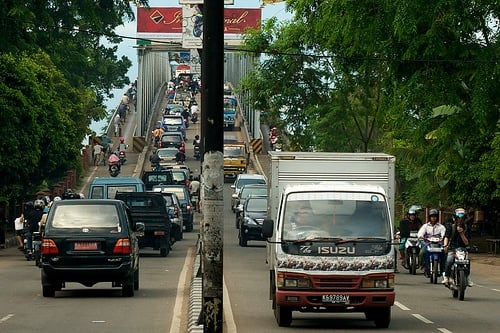
by Shaula Bellour (Indonesia) | Oct 10, 2013 | 2013, Expat Life, Family, Indonesia, Living Abroad, Shaula Bellour, Transportation
If you are new to Jakarta, macet – or traffic jam – is one of the first Indonesian terms you will learn. Jakarta traffic is notoriously bad and affects every aspect of life in the Big Durian. It determines where you live, shop, work, go to school – and how much you can do in a day.
With a metropolitan population of 28 million people and no rapid transit system, Jakarta is plagued with major transportation issues. Every day more than 13 million cars, trucks, buses and motorbikes hit the city’s flood-prone roads. With traffic speeds averaging below 20 kph and thousands of new vehicles joining the gridlocked throngs every day – it’s a recipe for constant congestion and frustration.
Although it is impossible to completely avoid traffic, I am lucky in many ways. With the exception of the school run, most of my daily life takes place within our local neighborhood: my office, gym, shops, restaurants, friends and activities are all within 15 minutes from home. This makes things infinitely easier.
Since my husband bikes to work (yes, really!), I have free access to our car. And like most people I know, we have a driver, which is fortunate since I wouldn’t dream of attemping to drive here.
Jakarta driving is not for the faint-hearted. Traffic rules (and lanes) are mostly suggestions, driving strategies are creative, a buffer of a few inches between cars is considered normal, and motorcycles are everywhere. Despite it all, there is a remarkably zen approach to driving here, with little road rage and relatively few accidents. (more…)
Shaula Bellour grew up in Redmond, Washington. She now lives in Jakarta, Indonesia with her British husband and 9-year old boy/girl twins. She has degrees in International Relations and Gender and Development and works as a consultant for the UN and non-governmental organizations.
Shaula has lived and worked in the US, France, England, Kenya, Eritrea, Kosovo, Lebanon and Timor-Leste. She began writing for World Moms Network in 2010. She plans to eventually find her way back to the Pacific Northwest one day, but until then she’s enjoying living in the big wide world with her family.
More Posts

by Shaula Bellour (Indonesia) | Jul 18, 2013 | Childhood, Communication, Family, Grandparent, Indonesia, Relationships, Shaula Bellour, Twins, Uncategorized, USA
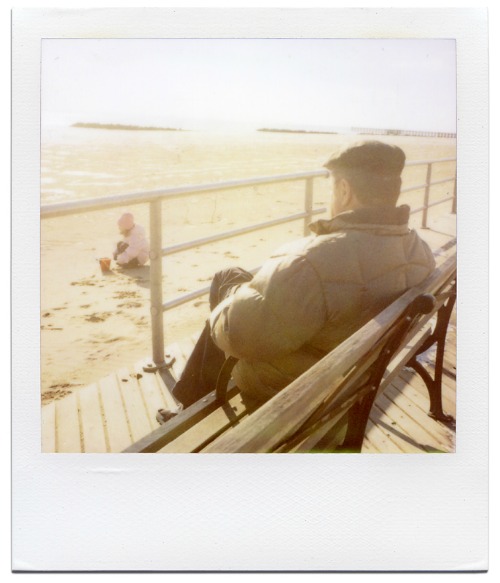 Out of the blue, my daughter recently asked “Mommy, who is your Daddy?” “My Daddy is Grandpa”, I said. “Do you remember him? We visited him in the desert.” “No, Mommy. Can we go to the desert again, so I can remember him?”
Out of the blue, my daughter recently asked “Mommy, who is your Daddy?” “My Daddy is Grandpa”, I said. “Do you remember him? We visited him in the desert.” “No, Mommy. Can we go to the desert again, so I can remember him?”
This breaks my heart.
Growing up, I always had a close relationship with my Dad. We are kindred spirits in many ways, and he has had a big influence on the shape of my life.
When I was 14, my parents separated, and my Dad moved to San Francisco. I loved visiting him there and experiencing the world beyond my suburban life – touring the city together while he listened, offered perspective and treated me like the adult I was becoming. After my friend backed out of our planned graduation trip to France – my first overseas experience – my Dad encouraged me to go by myself. Buoyed by his confidence, I took the leap…and thus began my traveling life.
Over the years he expressed only enthusiasm for my far-flung travel plans and showed up to philosophize over wine in Paris and fresh roasted coffee in Eritrea. Between adventures (and sometimes jobs), his home was a welcoming safe haven.
I always thought my Dad would make a wonderful grandfather. He is a gifted storyteller, seems to know everything about everything and even has a Santa Claus look about him – white hair, smiling eyes and a jovial laugh.
However, until now he has played a very hands-off role in my children’s lives.
In the years after the twins were born, we visited each other a handful of times. As a new mom, I had less time for keeping in touch – and my adventure tales were decidedly less riveting – but he was still just a phone call away, and I often took advantage of my rare alone time (usually while walking the dog) to give him a ring.
After moving to Asia 3 years ago, communication has dwindled. These days we might get an occasional email, but there are no skype chats, phone calls, letters, or birthday presents to unwrap. When you live far away from family, these are the things that keep us close – the quick IM exchanges, silly video chats, emailed notes and drawings, and slightly dented packages with exciting postmarks.
Luckily, my Mom and my British in-laws make a great deal of effort to keep in touch and up to date on our daily lives, which I am so grateful for. Our kids know, love and miss them and it’s a joy to watch their relationships grow and thrive despite the miles between us.
Three out of four grandparents isn’t bad, yet, I still feel disappointed by the Grandpa gap in our lives.
Everyone is missing out ,and I feel sad that my fantastic kids don’t know my equally fantastic Dad and that he doesn’t know them. Ultimately, though, their grandfather-grandchild relationship belongs to them. I can encourage this special bond, but I can’t create their connection or force them to know and love one another.
I also feel disappointed in my Dad’s hands-off role in my own life since having kids. Just because I am now a parent doesn’t mean that I don’t still need my own parent. Though I’m now living in the big wide world that he encouraged me to explore, all of the same advice applies. And sometimes I still need it.
In a few weeks we will drive our little family to the desert to visit my Dad for the first time in 2 years.
My hope is that my Dad and my children will have time to get to know each other and create some special memories during our short visit. For myself, I hope to reconnect with an open heart and commit to communicating better going forward.
Life is simply too short.
How do you maintain relationships with family when living far away? Has your relationship with your parents changed since you became a parent?
This is an original post to World Moms Blog by Shaula Bellour in Jakarta, Indonesia. Her blog, Notes From a Small World, is currently on hiatus but she promises to return to blogging soon.
Photo credit to Kihoon Park. This photo has a creative commons attribution license.
Shaula Bellour grew up in Redmond, Washington. She now lives in Jakarta, Indonesia with her British husband and 9-year old boy/girl twins. She has degrees in International Relations and Gender and Development and works as a consultant for the UN and non-governmental organizations.
Shaula has lived and worked in the US, France, England, Kenya, Eritrea, Kosovo, Lebanon and Timor-Leste. She began writing for World Moms Network in 2010. She plans to eventually find her way back to the Pacific Northwest one day, but until then she’s enjoying living in the big wide world with her family.
More Posts

by Shaula Bellour (Indonesia) | Jan 17, 2013 | Childhood, Cultural Differences, Family, Indonesia, International, Kids, Living Abroad, Motherhood, Shaula Bellour, World Moms Blog, World Motherhood
 Every day, my 5-year old son asks if he can ride his bike. Rain or shine; straight off the school bus, and often way too early on weekend mornings. With the training wheels off and his helmet on, he’s ready to go.
Every day, my 5-year old son asks if he can ride his bike. Rain or shine; straight off the school bus, and often way too early on weekend mornings. With the training wheels off and his helmet on, he’s ready to go.
Lucky for us, this is possible. We may live in a chaotic city of 10 million, but our quiet street is a welcome oasis – a dead end lane with just 10 houses and 20 other children to play with. The older kids all attend different schools, but usually gather when they get home – riding bikes, swimming, playing at each other’s houses, exploring tropical backyards, and visiting the “farm” (a.k.a community garden) at the end of the road. It’s a pretty ideal set up for our family.
With its crumbling sidewalks, crazy traffic and lack of parks, Jakarta isn’t known for its public green spaces or outdoor culture. Although there are plenty of family-friendly activities here, a lot of kids spend much of their free time indoors – in cars, malls and air-conditioned play areas. I don’t know of any public playgrounds or parks near where we live, which makes us even more grateful to have safe outdoor spaces at home.
The many benefits of outdoor play are well-documented, contributing to physical and cognitive development, emotional and social well-being, creativity and imagination, a sense of community, and (more…)
Shaula Bellour grew up in Redmond, Washington. She now lives in Jakarta, Indonesia with her British husband and 9-year old boy/girl twins. She has degrees in International Relations and Gender and Development and works as a consultant for the UN and non-governmental organizations.
Shaula has lived and worked in the US, France, England, Kenya, Eritrea, Kosovo, Lebanon and Timor-Leste. She began writing for World Moms Network in 2010. She plans to eventually find her way back to the Pacific Northwest one day, but until then she’s enjoying living in the big wide world with her family.
More Posts

by Shaula Bellour (Indonesia) | Oct 4, 2012 | Being Thankful, Childhood, Culture, Eye on Culture, Family, Indonesia, Living Abroad, Motherhood, Moving, Relocating, Shaula Bellour, Traditions, Twins, World Motherhood, Younger Children
 Our twins turn 5 years old today. It feels like a big milestone – one step closer to being full-fledged big kids, yet still with a foot in the little kid world.
Our twins turn 5 years old today. It feels like a big milestone – one step closer to being full-fledged big kids, yet still with a foot in the little kid world.
I often find myself marveling at their suddenly long legs, new vocabulary and thoughtful commentary on the world around them. It’s bittersweet of course, but mostly it’s a delight to watch them grow more and more into themselves every day. It’s definitely something worth celebrating.
This year our kids were a lot more aware of the whole birthday thing and have been getting excited for their big day. We’ve already been to three whole-class birthday parties this month. Now it’s our turn…
Our last two birthday parties were low-key DIY affairs, held at our house in Dili, East Timor. With no party stores to speak of, I spent weeks sourcing supplies – procuring goody bag contents, decoration-making materials, cake ingredients, and creative birthday presents from every corner of the city.
I became a pro at finding hidden treasures in unexpected (and often dusty) places – from back corner display cases to tin-roofed roadside stalls. I stayed up late with my glue gun and got up early to bake. Armed with a great no-melt frosting recipe (essential in the tropics), I was ready to go. (more…)
Shaula Bellour grew up in Redmond, Washington. She now lives in Jakarta, Indonesia with her British husband and 9-year old boy/girl twins. She has degrees in International Relations and Gender and Development and works as a consultant for the UN and non-governmental organizations.
Shaula has lived and worked in the US, France, England, Kenya, Eritrea, Kosovo, Lebanon and Timor-Leste. She began writing for World Moms Network in 2010. She plans to eventually find her way back to the Pacific Northwest one day, but until then she’s enjoying living in the big wide world with her family.
More Posts
by Shaula Bellour (Indonesia) | Apr 27, 2012 | Health, Indonesia, Living Abroad, Motherhood, Shaula Bellour, Shot@Life, World Motherhood
 A few weeks ago we had a rough day at the doctor’s office. Our twin four-year-olds needed a routine medical check up to apply for school next year so we set up an appointment at the nearby international health clinic. To ensure that I’d leave with filled-in forms – and given my son’s tendency toward noncompliance in medical settings – I spent a few days preparing them for the big event.
A few weeks ago we had a rough day at the doctor’s office. Our twin four-year-olds needed a routine medical check up to apply for school next year so we set up an appointment at the nearby international health clinic. To ensure that I’d leave with filled-in forms – and given my son’s tendency toward noncompliance in medical settings – I spent a few days preparing them for the big event.
We talked a lot about what would happen at the appointment and why it was important. I also banked on a bribery strategy and took the kids to the toy store the day before to pick out craft activities that we would do together after a successful check up.
The exam began and both kids were doing great and cheering each other on: “you’re doing a good job!” said one to the other. Then it was time for the required Mantoux TB skin test – an injection of Tuberculin beneath the skin on the inside of the left forearm.
My daughter cheerfully agreed to go first. Her smile quickly gave way to a frozen look of shock and then (more…)
Shaula Bellour grew up in Redmond, Washington. She now lives in Jakarta, Indonesia with her British husband and 9-year old boy/girl twins. She has degrees in International Relations and Gender and Development and works as a consultant for the UN and non-governmental organizations.
Shaula has lived and worked in the US, France, England, Kenya, Eritrea, Kosovo, Lebanon and Timor-Leste. She began writing for World Moms Network in 2010. She plans to eventually find her way back to the Pacific Northwest one day, but until then she’s enjoying living in the big wide world with her family.
More Posts

 Recently, while checking out at the grocery store my 6-year old daughter wandered a few aisles down to chat with someone while she waited. In child-friendly Indonesia, this is pretty common.
Recently, while checking out at the grocery store my 6-year old daughter wandered a few aisles down to chat with someone while she waited. In child-friendly Indonesia, this is pretty common.

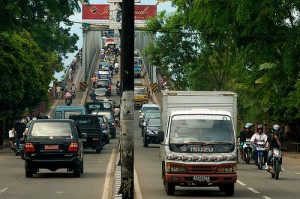

 Out of the blue, my daughter recently asked “Mommy, who is your Daddy?” “My Daddy is Grandpa”, I said. “Do you remember him? We visited him in the desert.” “No, Mommy. Can we go to the desert again, so I can remember him?”
Out of the blue, my daughter recently asked “Mommy, who is your Daddy?” “My Daddy is Grandpa”, I said. “Do you remember him? We visited him in the desert.” “No, Mommy. Can we go to the desert again, so I can remember him?”







